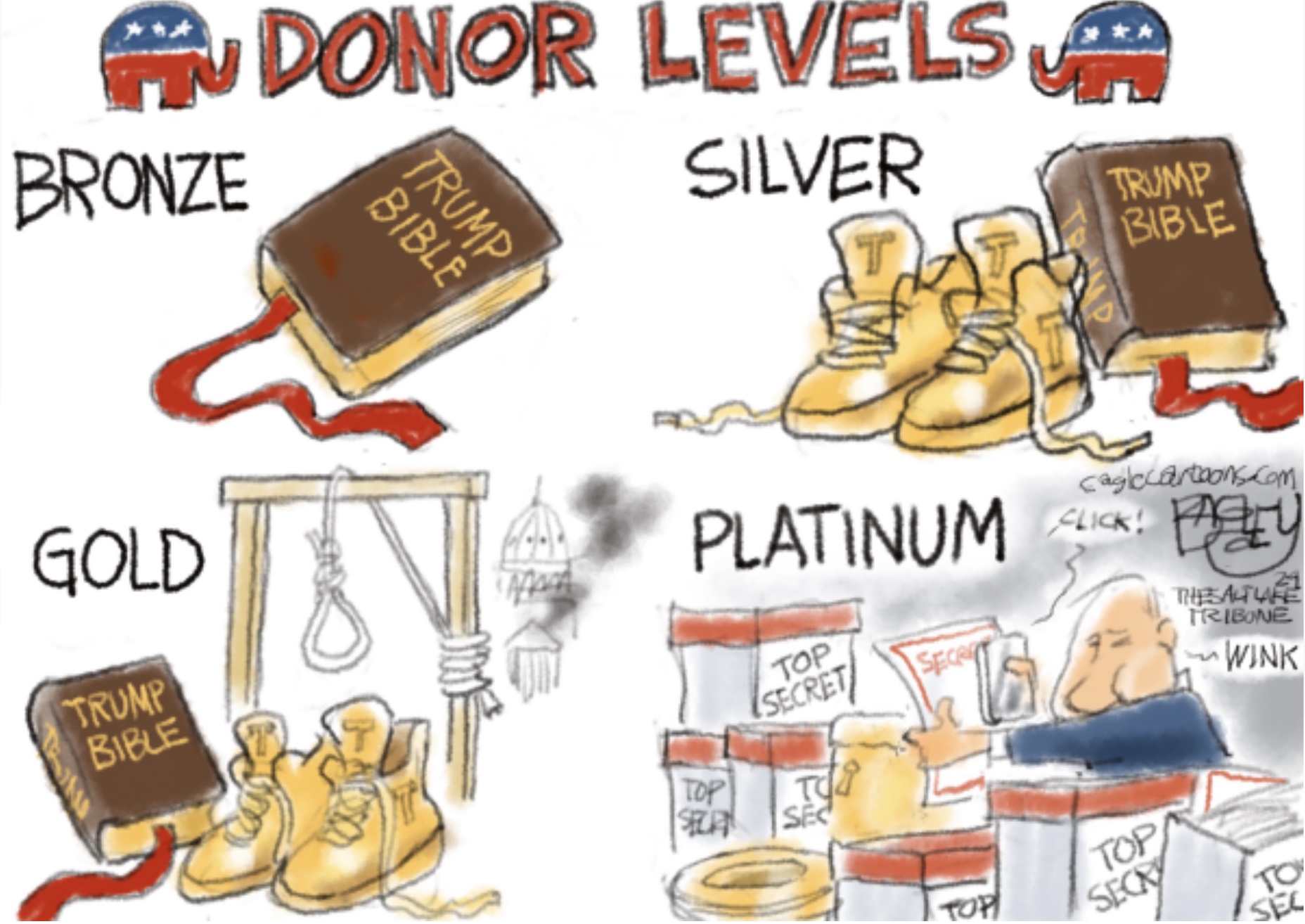I Left the Mormon Church. I Feel for Former Trump Supporters
The Switch Is Never Easy

Recent polling trends and widespread praise for Vice President Harris’s debating skills make it plain that many Americans are in the process of changing their minds about Donald Trump. For some, that switch might be easy. For others, I’m guessing it isn’t. I know what it’s like to believe in something then lose that belief, so I can imagine how former Trump supporters might feel to find themselves re-examining the crimes, lies, and poisonous policies of a candidate whose ideas seem increasingly stale.
I left the Mormon church when I was twenty, having spent the first two decades of my life believing things that turned out not to justify my belief. Mormonism had been a huge part of who I was, so leaving wasn’t an overnight process. I had been taught to protect my belief, to keep it safe from outside ideas. But the facts around me were not adding up. When I was sixteen, I began asking questions, and church leaders immediately rebuked me, telling me to be patient and have faith. Then, much to my shock, I learned more about the history of the church, the mechanics of mind control (which apply as much to politics as they do to religion), and details of Mormon doctrine. My belief stretched and stretched until one day, in the conflict between what the church said and what I saw with my own eyes, my belief snapped. It stopped. It changed, in the blink of an eye.
I don’t know about you, but for me, belief feels good. It connects me with something bigger than myself. It creates community. It makes life feel like it matters, like there’s more going on than mere billiard-ball atoms bumping into each other all day. And there are many great ideas to believe in, such as character, compassion, freedom, and justice. The problems begin when belief no longer matches up with reality. When too much evidence contradicts a belief, cognitive dissonance sets in. The mind’s gears jam while trying to reconcile a false belief with facts that disprove it. The two conflicting ideas can’t both be true, any more than a car can run in two gears at once, so eventually, one idea wins, and the mind shifts into the gear that works best.
For example, Donald Trump hugs and kisses the American flag (without its consent, I might add) and then he sends a violent, treasonous mob to attack the Capitol. Which is it: is he a patriot or a traitor? Clearly the evidence points to traitor. He doesn’t appear to be religious but hawks Christian Bibles to cover his legal bills. Which is it: believer or con man? The evidence points to con. He lies about a big lie, then is convicted thirty-four times—thirty-four!—of lying on business records. Clearly the lies are his, and he is the one who attempted to steal a free and fair election.
When my belief in the Mormon church changed, I realized that Mormonism might work for other people, but it didn’t work for me. I could no longer subscribe to that belief system, and I saw the church in a new way. But I had no idea yet what it meant not to be Mormon. What would life look like now?
It turned out that life on the outside was bigger. I could watch more movies, read more books, make more friends, go more places, and yes, drink more coffee. Eventually, I realized that “losing my faith” was a misleading phrase. I hadn’t lost anything. I had gained new awareness and new opportunities. Actually, I had lost one thing: the mental conditioning that restricted my life and held me back.
In the time after I left, one of my most pressing questions was, “What do I believe now?” The Mormon church had told me what to believe my whole life, the way Trump tries to tell people what to believe. So, in the absence of Mormonism, where could I place my belief? One of my first post-Mormon beliefs was that you’re always allowed to change your mind. I still believe that. Mormonism tried to convince me that I wasn’t allowed to change my mind about the church. But changing my mind on that topic was a pivotal gift that opened new vistas of possibility. I wanted to stay open to changes like that.
Truly, minds change all the time. Whenever you learn something, your mind changes. When you go someplace, do something, or wake up in the morning, your mind changes. Our minds keep changing throughout our lives.
I know first-hand how unsettling it can feel when a mind is in the process of making a big change, but I also know how much more interesting and delicious the world can be on the other side. If your mind is in the process of changing, my advice would be to gather information from many objective points of view, listen for your inner wisdom, and go easy on yourself. Whatever changes are happening, they’re yours and yours alone. Exactly the way your vote will be.
